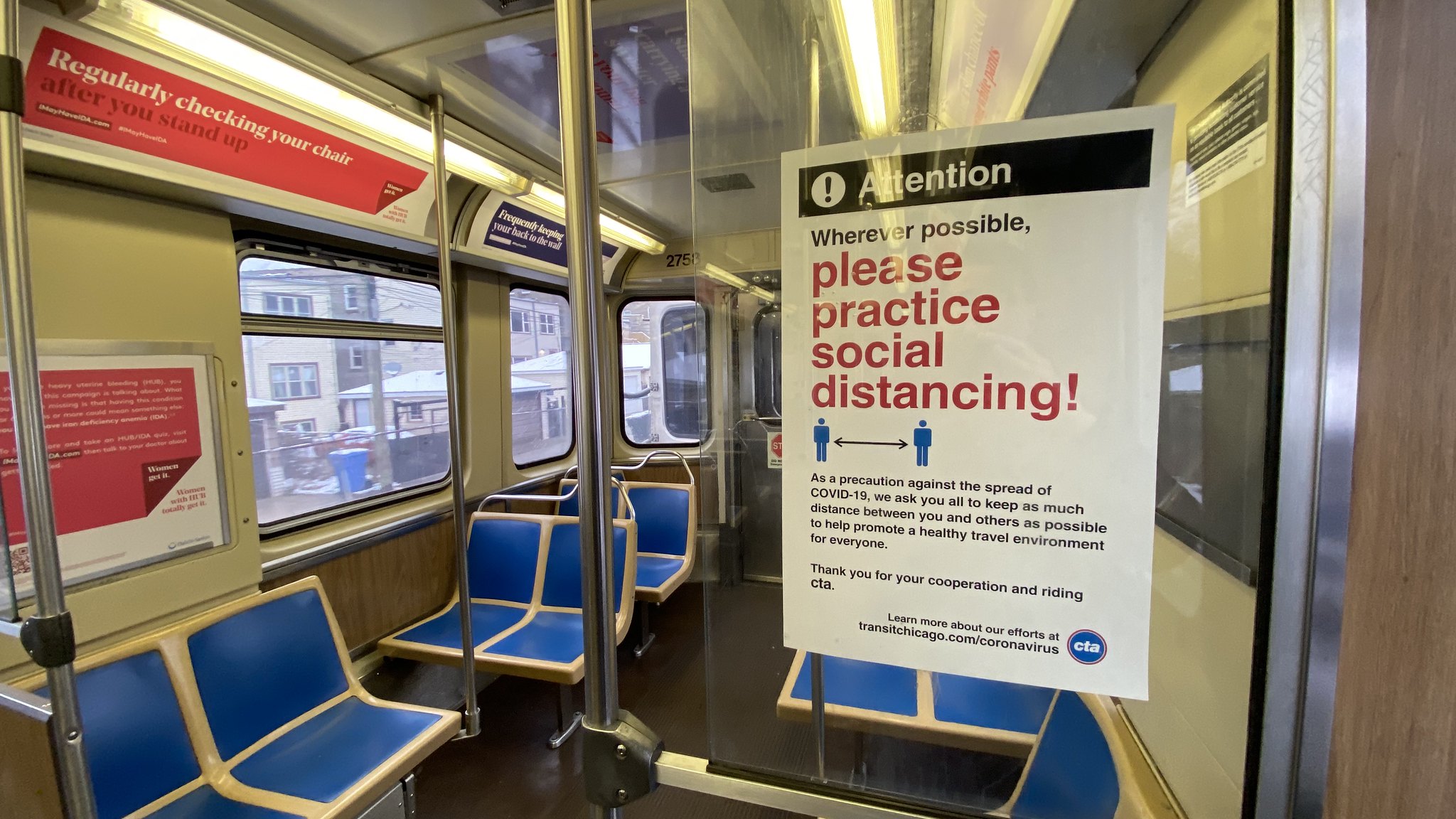To discuss the impact of the coronavirus crisis on mobility across metropolitan Chicago, the Urban Transportation Center at the University of Illinois at Chicago held an hour-long seminar called “Changes in Mobility Options and Patterns in the Wake of the COVID-19 Pandemic." The discussion, held last week over Zoom, featured a number of local transportation heavy-hitters, including Chicago Metropolitan Agency for Planning executive director Erin Aleman, Chicago Department of Transportation Commissioner Gia Biagi, and Active Transportation Alliance executive director Amy Rynell, plus moderator Dr. P.S. Sriraj, director of the Urban Transportation Center.
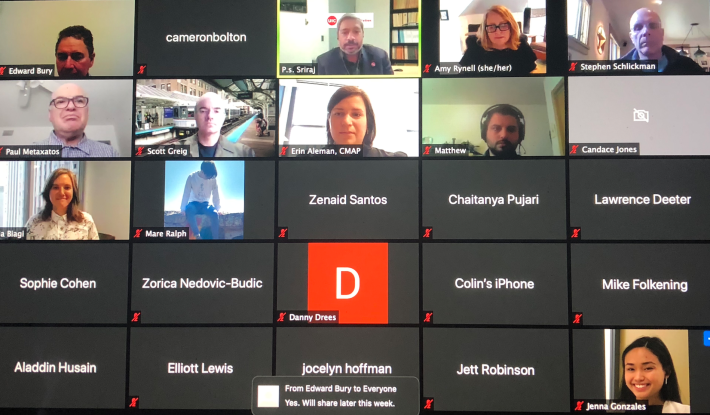
The first speaker was Aleman, who noted that even though traffic congestion is back after a decrease in driving earlier in the pandemic, traffic volumes are still down about 10 percent compared to last year. Another key piece of information Aleman shared was data on who is traveling across the region to get to workplaces. CMAP's research found that people who earn below the average median household income and work in essential services have continued to commute during the crisis, while more affluent white-collar employees have had the privilege of working from home.
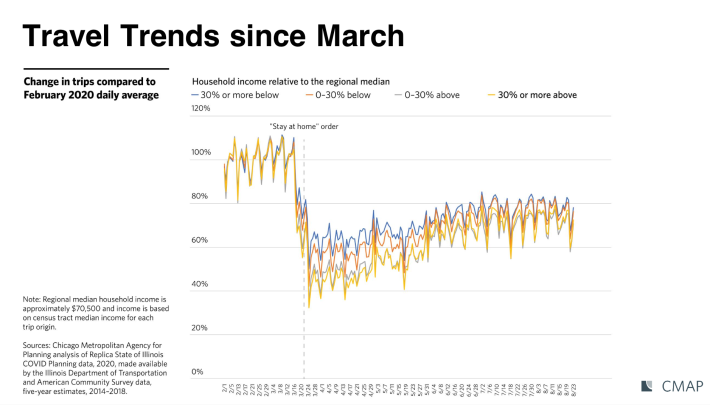
Rynell discussed ATA's listening tour with community leaders from around the region on pandemic transportation issues. “The most important thing we heard... is that public transit was a lifeline during COVID. Essential workers needed to rely on transit to get to work, and these were workers in disproportionately Black and Brown communities, the same communities hardest hit by COVID."
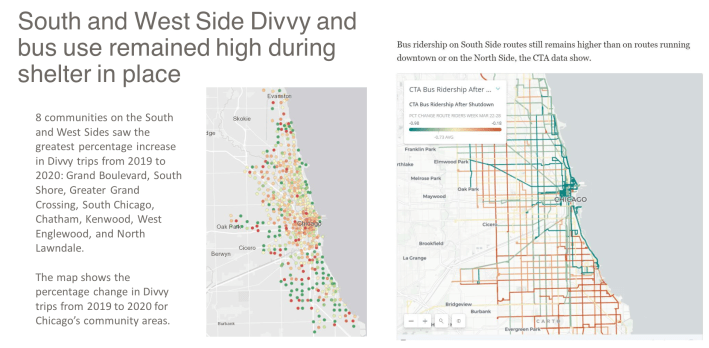
“The Active Transportation Alliance really focuses on and advocates for walking, cycling, and transit," Rynell added. "With our goals being to create climates for sustainable and equitable communities. And through that work, like probably many of you on this call, we have been evaluating our mission and how it can be most impactful during this moment.”
The impact of the crisis on essential workers was a recurring theme during the seminar. Commissioner Biagi discussed said that, because they were classified as essential, CDOT employees never stopped showing up to work. “From an essential department’s perspective, what that means is that we have about 900 folks out of 1300 that are still filling potholes, that are still fixing lights, that are doing the kind of day-to-day striping, putting in the bike lanes, that kind of thing,” said Biagi. “We’re like many city [transportation] departments across the region and our peers at [the Illinois Department of Transportation] who talk a lot about the implications of continuing to provide services.”
Biagi also defended CDOT's arguably overly-cautious approach to the issue of making more room on the street for socially-distanced walking, transit, and biking -- the department essentially did no public space interventions until months after peer cities. She said she asked her colleagues in other cities, “How did you engage communities in decisions? Most said, ‘We had no time and we just rolled it out.’ And part of our approach was to take a breath, say we’re going to be okay, but let’s actually take the time to listen to the community about what they would like to see happen in terms of their streets in this moment.”
Later in the panel Rynell discussed the massive challenges the pandemic has created for local transit systems as ridership and revenue have plummeted. The two biggest sources for operations funding are fare payments and income from local sales tax, which have both bottomed out in recent months. While the first round of federal stimulus money temporarily filled the gap, Rynell noted that without further intervention, Chicago and other big cities are going to have to resort to drastic service cuts and/or fare hikes, which could further depress ridership, setting the stage for a "transit death spiral."
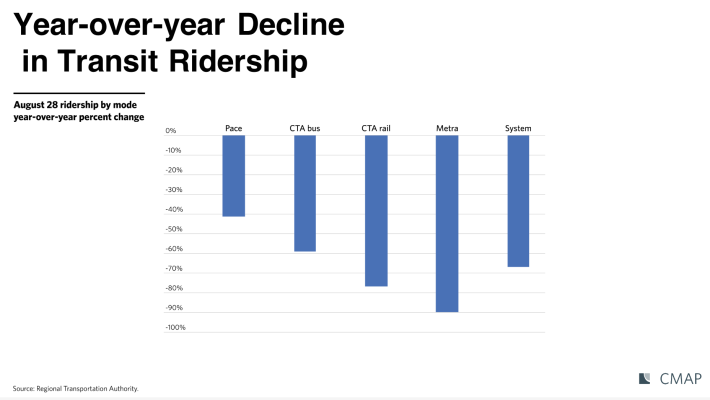
“The federal government has acted," Rynell said. "They did an earlier stimulus package that provided funding to the [Regional Transit Authority, which oversees funding for the three transit systems] that has been vital to keeping things operating. But that money won’t last forever and there are other cities that are already proposing really catastrophic cuts. So we’re not there yet, thankfully, in the region, but there’s a very concerted effort to get Congress to include more funding in the next stimulus package or packages as that may be.”
Besides government intervention, another action Rynell said was needed is to reevaluate the state requirement that transit agencies collect 50 percent of their operating budget from fares. That has always been a dubious policy, but with ridership at historic lows, that mandate is basically impossible to fulfill.
Watch a recording of the panel and view Aleman's and Rynell’s slideshow presentations here.
